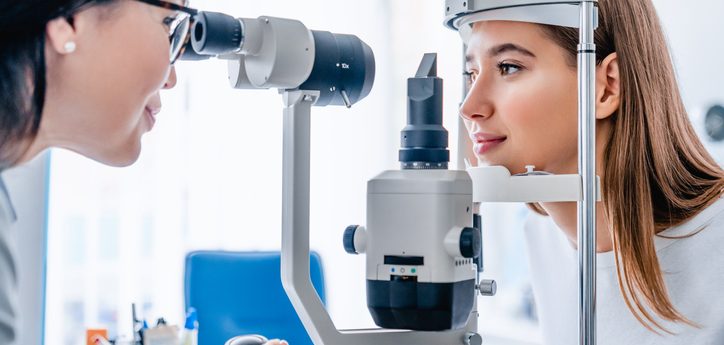Eye health is part of a holistic approach to physical and emotional health. Eye pain and sight loss can have a significant impact on physical and mental well-being. That’s why examining the different forms of eye disease are important in the journey to preventative care and treatment.
The Glaucoma Research Foundation has deemed January Glaucoma Awareness Month in order to bring attention to this eye health issue. Here’s what to know.
What is Glaucoma?
Glaucoma is an eye disease that primarily impacts the middle-aged and elderly, but can ultimately affect people of all ages. While there is currently no cure, medication and surgery can slow or prevent future vision loss. The appropriate treatment will depend on the type of glaucoma and other factors, but early detection through eye exams is crucial in preventing sight loss from this disease.
What Are the Types of Glaucoma
Glaucoma takes two forms: primary open-angle glaucoma (POAG) and angle-closure glaucoma. Both indicate an increase of intraocular pressure (IOP) (pressure inside the eye). If optic nerve damage has occurred even with a normal IOP, it’s called normal tension glaucoma.
There is also secondary glaucoma, which refers to when another disease causes or contributes to increased eye pressure and therefore results in optic nerve damage and vision loss.
Glaucoma Facts
- Glaucoma is the second leading cause of blindness in the world, according to the World Health Organization. Oftentimes, there are almost no symptoms, as vision loss begins with peripheral or side vision. If you have glaucoma, it’s possible to not see any real issues until significant vision is lost.
- Siblings of people with a glaucoma diagnosis have a significantly increased risk of glaucoma.
- High risk factors include people of African, Asian, and Hispanic descent, people over 60, family members of those already diagnosed, diabetics, and people who are severely nearsighted
- The best way to prevent sight loss due to glaucoma is to get a comprehensive eye examination and visit your eye doctor regularly. If you’re diagnosed with glaucoma early on, it’s much easier to prevent future damage and create an effective treatment plan.





